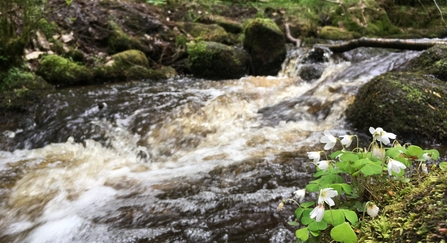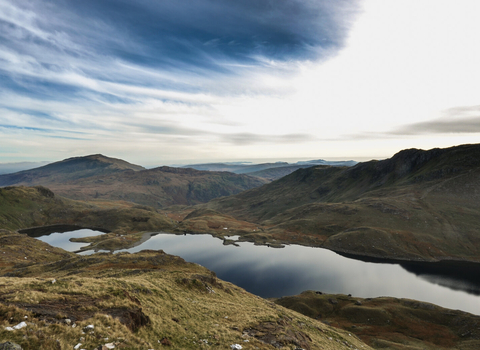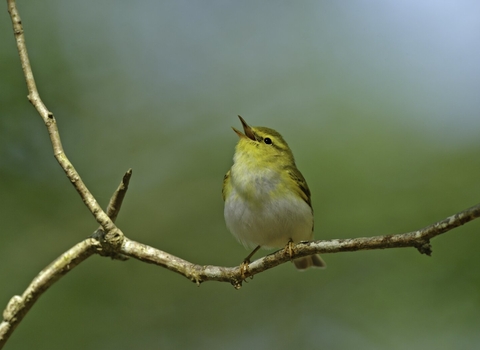Our rivers in Wales have suffered from serious water pollution incidences caused by a minority of farmers in Wales. Wildlife Trusts Wales welcomes the announcement today to tighten regulation to stop bad practice which causes catastrophic damage to wildlife. For too long the farming industry has relied on voluntary measures that simply haven’t deterred the worst offenders. We acknowledge that the majority of farmers do protect watercourses. These new regulations should enable a level playing field for all farmers in Wales.
A brighter future for Welsh rivers
Andy Rouse/2020VISION
“This is great news for Welsh rivers and is long overdue. I wholeheartedly support any measures that will help improve the quality of Welsh rivers for wildlife and for people.”BBC presenter and naturalist
The main cause of the pollution is leaching or at times deliberate disposal of slurry (animal waste) into rivers. Slurry is a strong pollutant which removed oxygen from the water, killing fish and other wildlife such as aquatic insects. This can leave large stretches of rivers and streams devoid of life including some of Wales’ most iconic rivers such as the Wye and Teifi. It can take decades for rivers to recover following an incident.
The new rules put agricultural best practice into legislation. This includes preventing farms in Wales from spreading slurry on their fields from mid-October to the start of February. This lessens the chance of it being washed into our rivers and streams and wreaking havoc on wildlife.
Welsh Government have previously described the number of agricultural pollution incidents in Wales as an "embarrassment" for the country. Natural Resources Wales (NRW) stated that most of Wales major rivers are suffering from significant water pollution. It warned that time was running out to "avoid a catastrophic situation for Wales".

Tom Hibbert
Water pollution affects everyone in Wales. It is the public who pays for the clean-up through our water bills, as water companies spend millions of pounds removing agricultural pollution from our water.
But there is also a huge cost to nature. A high-quality water environment is essential to support a healthy ecosystem, which in turn provides several services for people. The natural environment and the ecosystem services it provides is one of Wales’ greatest assets, contributing £8.8bn a year to our economy and supporting one in six jobs. This action will help protect our rural communities, which benefit from income from tourism, angling and water sports that all need healthy, clean rivers.
James Byrne, Living Landscapes Manager for Wildlife Trusts Wales said:
“The Wildlife Trusts in Wales have long called for significant pollution issues in Wales to be addressed. Agricultural pollution contributes to an overall deterioration in water quality and leads to nutrient enrichment known as eutrophication - toxic algal blooms which absorb all the oxygen from both freshwater and coastal waterbodies, significantly reducing the biodiversity and conservation value of that waterbody.”
James continued:
“Therefore, we are pleased to see that Welsh Government are bringing in these new regulations to tackle agricultural pollution. Unfortunately, we hear regularly of new pollution incidents that are killing fish and other river wildlife in significant numbers. But pollution isn’t just impacting wildlife , the treatment of water costs millions of pounds, all of which increases our water bills.”


